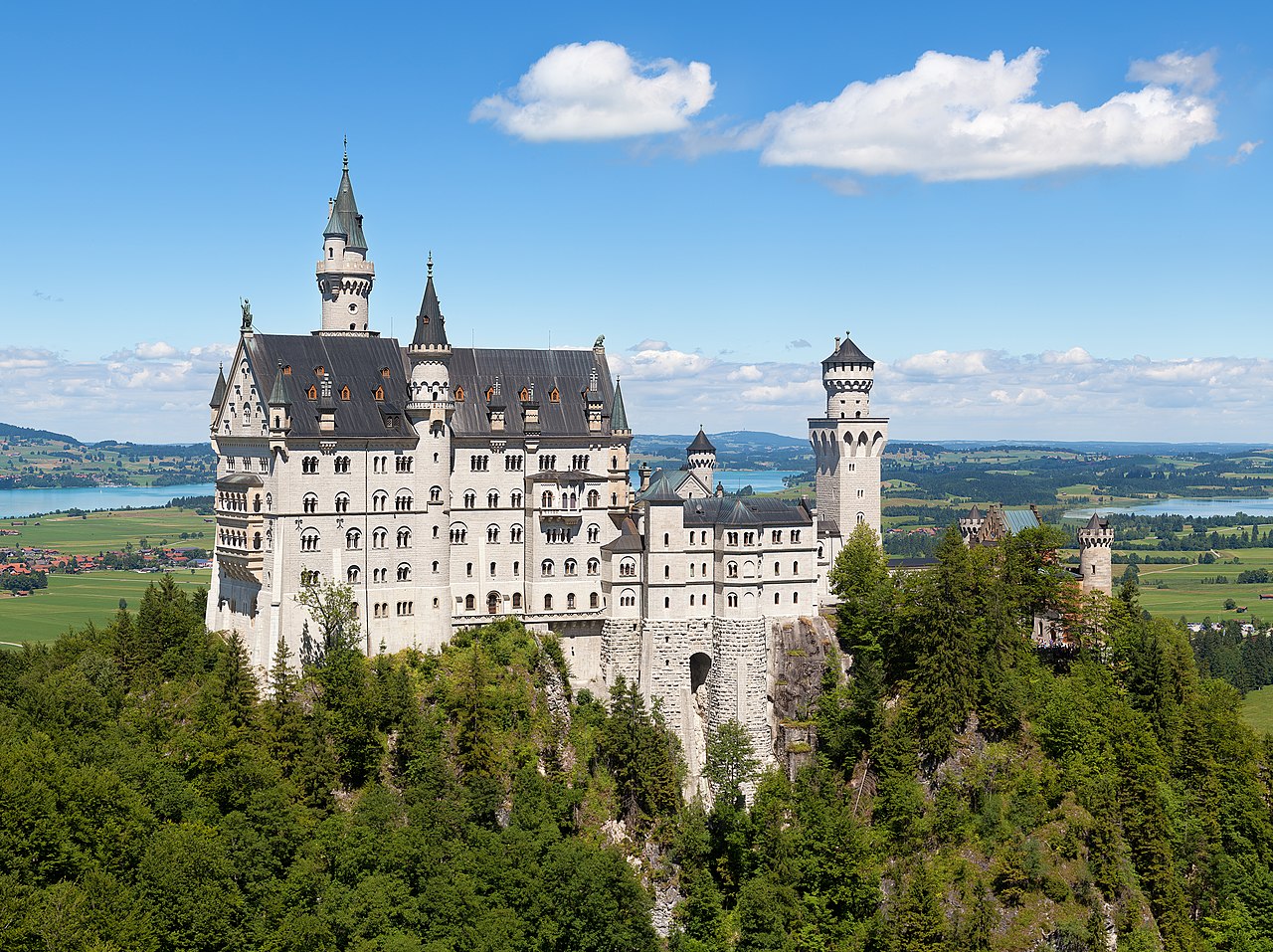John Donne's idea that "no man is an island" can be thought of in another sense, events do not happen in isolation. Sir Isaac Newton said for every action there is an equal and opposite reaction. The reformation was a response to the unchecked corruption that had been occurring for centuries, and the counter-reformation was the Catholic's response. But there are other reactions that occurred during this time that were just as important. One of these was the economic changes that occurred in Europe.
 |
| Castles and other buildings were made in greater quantities due to by governments |
An interesting change in power occurred when the Catholic church began to lose power in Europe. Until the reformation, the Catholic Church had held a monopoly on religion and had used that power politically, but as that hold began to weaken, a vacuum was created. The protestants tried, in part, to gain hold of this power, but contending with the Catholic Church took up most of their time, allowing monarchs like the German Princes to seize a great deal of the resources left in the wake of the religious fighting, such as land and revenue from monastic guilds. This was reflected in new constructions during that time, away from the religious and towards the interests of the secular lords (see Cantoni). Although the reformation was a religious movement, it had ramifications that changed the rest of Europe by breaking the political, economic, and religious hold the Catholic Church had, indirectly making way for future secularization.
Although all of this does impact to a certain degree today, we also face different sorts of reformations. The people's voices are being heard, and groups have been formed to champion new issues that have come up, as evidenced by the #me too movement, black lives matter, and the LGBT community to name a few. Regardless of how one's personal stance on these issues, the decisions made to today will have consequences that will shape our country in both obvious and obscure ways. A more recent example of this are some of the consequences of the civil right movement. If you are interested in finding out more about this go here.

Somer's post ties into this by quoting Donne, saying, "seeking for religious truth is better than not for seeking any truth at all." It seems that both the past and present reformations you mention were brought about by people thinking outside their traditional views and seeking for truth.
ReplyDelete